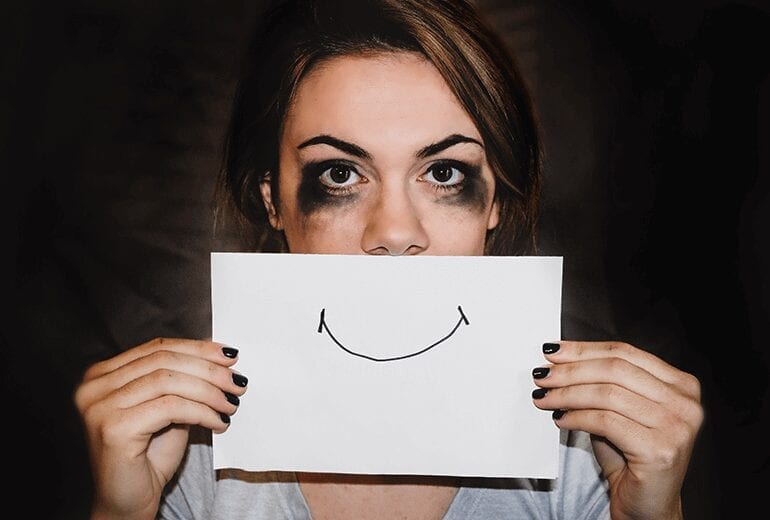How Is This Year’s Seasonal Affective Disorder Different Than the Rest?
2022’s Effects of Social Isolation and Substance Abuse
According to Centers for Disease Control and Prevention, overdose deaths reached a record high of 81,230 for the year ending in May 2020, fueled by the pandemic lockdown. For a person suffering from depression, social isolation can be debilitating.
Many studies have been done that illustrate the measurable physiological effects of solitary confinement. The United Nations has banned its use for longer than 15 days considering it a form of psychological torture. Working from home, bans on gathering outside of persons who live within one’s own household, even the disruption to a person’s normal workout routine, all can feel constraining, akin to solitary confinement for some.
What is Seasonal Affective Disorder?
The onset of the colder months may also exacerbate one’s feelings of confinement. With colder weather driving more people indoors, shortened daylight hours, and the grey palette associated with the winter months, feelings of depression are often intensified for many.
Approximately 10 million Americans suffer from a condition called Seasonal Affective Disorder (SAD), with another 10 to 20 million having mild SAD. Seasonal Affective Disorder is a type of depression recognized by the National Institute of Mental Health causing significant changes in mood and behavior affecting how a person thinks, feels, and handles daily activities. Persons suffering from this condition describe reduced energy levels, feelings of hopelessness or worthlessness, loss of interest in activities, even suicidal ideations. Mental health professionals fear the anxiety and stress provoked by the pandemic will increase the risk and severity of winter depression for everyone.
Covid-19’s effects on Seasonal Affective Disorder
With increased difficulty in finding safe activities, changes in jobs and educational structures, high employment rates, and decreased accessibility to extrinsic supports such as family, friends, and coworkers, normal coping strategies to combat depressive episodes are limited. Combined with incessant exposure to grim statistics and constant reporting of increasing number of cases and deaths, feelings of despair can overwhelm those that may already be struggling leading them to turn to self-medication measures such as drugs and alcohol.
Prior to the pandemic, substance use disorders and addiction was a huge problem, leading to the first-ever decrease in life expectancy. Due to the multiple stressors caused by the pandemic and reduced access to normal treatment programs, and 12 step programs, the situation has only worsened since the Coronavirus Pandemic.
How to Stay Covid-19 Safe While Fighting Seasonal Depression
To combat what can be defined as a secondary pandemic, emphasis should be placed on tips to prevent or manage depression. Proper nutrition, appropriate sleep, and regular exercise are instrumental in maintaining the body’s natural resiliency to both external and internal stressors and have been scientifically proven to help reduce depression. Simple meditation for 5 to 10 minutes per day with a goal of increasing the daily amount has also been shown to have a large impact on well-being. Assisting people in creative ways to foster connectedness to family and friends such as video conferencing, virtual game nights, or remote book clubs can also decrease the feelings of isolation.
Get Help For Substance Abuse Triggered by Seasonal Affective Disorder
Resources for those struggling with new addiction or for those relapsing after recovery must also be included as part of the pandemic recovery process. Contact information for interventionists, residential treatment and detox programs, and 12 step programs should be advertised as frequently as the latest number of cases.
For those that have already been affected by the post-holiday blues, Silver Linings Recovery Center in Langhorne, PA and East Windsor, NJ is well equipped to handle and treat patients suffering from Seasonal Affective Disorder. Silver Linings Recovery Center understands that alcohol, prescription, or other substance abuse issues may be symptoms, rather than causes of SAD. Through residential, partial outpatient, and fully outpatient programs, we help patients not just with the symptoms of Seasonal Depression but help find the holistic cause and give you the tools to combat it.
Get Help Today
If you or a loved one is struggling with Seasonal Affective Disorder leading into substance abuse or addiction, Silver Linings may be able to help. We offer a number of holistic treatment options like mindfulness during recovery. Addiction can be a tough situation but you don’t have to go through it alone. Let us help you and your loved ones get to a bright future. Contact us today to learn more about our treatment options and if you have any questions at all!

